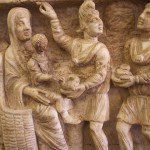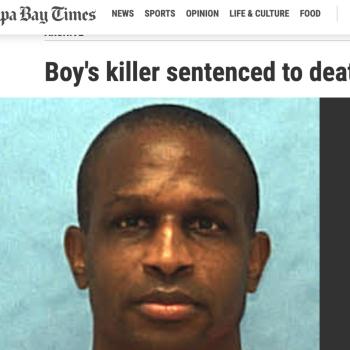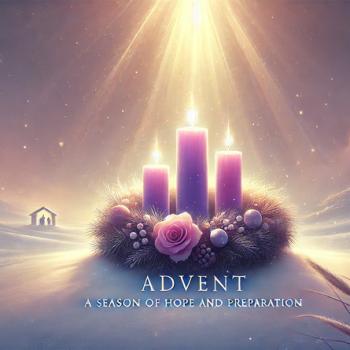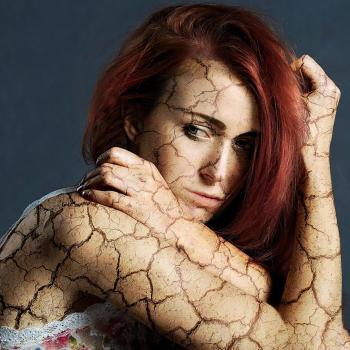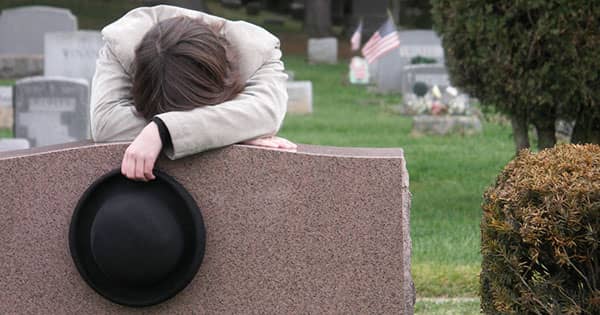 |
| Christy Thompson / Shutterstock.com |
Note: This is the fourth of a nine-part series of personal vignettes that explore the challenges of the human journey from cradle to grave. Start at the beginning here.
Toward the end of my time living in New York City, and before I moved to Chicago to try to build a new life and career, I met frequently with one family from my congregation. While I was in professional and personal limbo — with one foot planted in the work that had shaped my identity for a decade, and the other one increasingly out the door — it was the relationship with that family that grounded me and gave me a sense of moral duty. The situation, while tragic, was also transformative. I'd become so disillusioned about religious community, about the lack of commitment shown to their faith tradition by most of those I was serving, that I needed a concrete example of what religious work could do, or at least be, at its best.
I needed to see how religion, and a religious vocation, could help bring people closer rather than drive them apart.
The Diamonds were one of the founding families of our synagogue. I had gotten to know all four of them over the years through religious school, bar mitzvahs, retreats, and adult learning programs. The husband, Bill, was a very successful architect, and the wife, Susan, had worked in investment banking before deciding to leave it behind and focus her time on volunteer work and raising her two boys. The family was active in the congregation and consistently supportive of our financial needs.
I counted them as my friends.
We first got to know one another more intimately during a congregational retreat at a camp in the Connecticut Berkshires. The context helped to create informal and positive interactions, whether it was during meals in the dining hall, reading and discussing the Torah on a hillside, or playing softball. Bill, who was not a big talker (which was anomalous in this group of intense and boisterous Manhattanites), became animated on the ball field. He was tall and athletic, and I have vivid memories of watching him drive softballs deep into the outfield with a seemingly effortless swing.
While he did not show up very often to services or synagogue events, I always enjoyed his presence and (quietly charismatic) personality when he did. The Diamonds lived in Tribeca. After the collapse of the World Trade Center on 9/11, and because of their apartment's proximity to Ground Zero and the noxious gases that emanated from it, Bill and his family had to move out and live with various friends for several months. I checked in with them frequently and tried to offer support during their dislocation from home.
Not long after they had moved back to Tribeca, I was notified by my lay leadership that Bill had been diagnosed with Lou Gehrig's disease, or ALS, a neurological disease that has no cure. While, as a young rabbi, I had seen my share of challenging situations (and had served, in fact, as a chaplain to first responders and members of law enforcement at Ground Zero in the days immediately after the terrorist attack), bearing witness to Bill's rapid, inexorable decline and extreme motor degeneration was something that I had never before encountered.
It seemed almost unfathomable to me that such a horrific disease, following so closely to the family's prior trauma and disruption, could strike a good, honest man in his prime, and ultimately affect his entire household, so arbitrarily and irrevocably.
It was like a chapter from the book of Job.
I visited Bill and his family regularly. Everyone did their best to stay hopeful, but after many and varied consultations and treatments, Bill, Susan, and their kids braced for the inevitable. Over several months, I watched helplessly as the disease quickly and viciously attacked Bill: he went from walking with a cane, to sitting in a wheelchair, to being confined to a bed. In our private moments, Bill cried about his constantly deteriorating condition and his concern about the future of his wife and children. He expressed his doubts about God. He shared memories from his past and fears about what was to come. Bill's voice grew weaker by the week; it was often very challenging just to understand the words he would whisper, barely audibly, into my ear.
